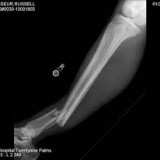Is there a duty to take cannabis?
A 2014 judgment of the Supreme Court of British Columbia illustrates just how far the debate has swung on the issue of marijuana as medicine. The judgment of Gelsby v. MacMillan (March 4, 2014, BC Supreme Court) was a routine personal injury case in many respects. The plaintiff, Jessica Glesby was injured in a motor vehicle accident, suffered various injuries, and went to trial on the issue of the “assessment of damages” (how much money would she receive for her injuries). The arguments raised by both parties were for the most part not out of the ordinary, with the defendant’s arguing that...
read moreDid Manulife make “deliberately false” statements?
On January 16, 2014, the Ontario Superior Court of Justice rejected an application by Manulife Financial to dismiss the action against it in Sells v. Manulife, 2014 ONSC 715. The judgment is found at: Sells v Manulife, 2014 ONSC 715. The plaintiffs in this action are former agents of Manulife. Their essential claim for their damages against Manulife is that Manulife made very serious but false and misleading statements regarding the plaintiffs’ work and practices while with Manulife which Manulife knew or ought to have known would make it impossible for the plaintiffs to obtain new...
read morePension benefits not deducted from wrongful dismissal damages.
In a decision released in 2013, IBM Canada Limited v. Waterman (“Waterman”), the Supreme Court of Canada decided that an employee was entitled to keep his pension benefits as well as the full damages awarded to him for wrongful dismissal over the same period of time. Background After 42 years of service, and at the age of 65, Richard Waterman (“Mr. Waterman”) was terminated by IBM Canada Limited (“IBM”). He was only provided with 2 months notice. At the time of termination Mr. Waterman was entitled to a full pension pursuant to IBM’s defined benefit pension plan. Over the course of his...
read moreFailure to examine plaintiff diminishes weight of expert report.
It is well established that failure of an ‘independent medical examiner’ to physically examine a patient is not, in and of itself, a reason for an expert report to be inadmissible in the BC Supreme Court. However, when a litigant relies on such a report the weight the court attaches to it is often negatively impacted. Reasons for judgement released by the BC Supreme Court on December 31, 2013, demonstrate this. In Johal v. Meyede the plaintiff was injured in a 2010 rear end collision. Fault was admitted by the defendant. The plaintiff suffered injuries which were ongoing at the time of...
read more$140,000 for “very serious” femur fracture.
On August 29, 2013, the BC Supreme Court assessed damages for a serious femur injury and moderate wrist in jury. In Han v. Chahal the plaintiff pedestrian was injuries when she was struck by the defendant’s vehicle while walking in a marked cross walk. The defendant was found fully responsible for the crash. The plaintiff suffered a variety of injuries the most serious of which was a fractured femur. Although the Court found some issues with the plaintiff’s reliability as a witness the Court did accept the injury left her with a degree of chronic pain and limited function. In assessing...
read moreKnock down the house of cards.
On August 23, 2013 a judge of the Supreme Court of BC held that when opinion evidence is introduced into court the factual underpinnings upon which the opinion is based must be proven, otherwise the opinion evidence is of no value. In Paller v. Regan, 2013 BCSC 1672, the plaintiff was injured in a 2009 collision. ICBC admitted the defendant was at fault but disputed the collision caused any injuries. In support of their position they relied on an orthopaedic surgeon who never examined the plaintiff but provided an opinion that it was “unlikely” the plaintiff’s injuries were caused by the...
read more









